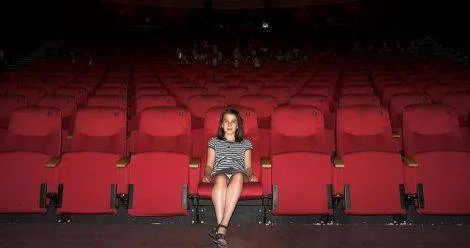
11 Novels That Need to Be Made into Movies, Like, Yesterday
This content contains affiliate links. When you buy through these links, we may earn an affiliate commission.
I rarely enjoy a bookish movie as much as the book it’s based upon (though miracles do happen), yet I can’t stop myself from adding them to my Netflix queue as soon as they become available. After all, short of reading the book over and over again (which I also do), it’s the only way to draw out my experience of a book I enjoyed.
Luckily, plenty of movie makers seem to be seeing the wisdom in using works of literature as their source material. The other week, for example, I finally watched Wild. I was so moved, I ran to my bookshelf to grab and re-read Tiny Beautiful Things. And just the other night, I watched the most recent film adaptation of The Little Prince, which was absolutely stunning. And in searching online, I learned that a lot of my favorite recent reads have been optioned for film. (I’m waiting, you guys. Snap, snap.)
Still, I have some additional requests.
Mark Danielewski’s House of Leaves, directed by Takashi Miike
This debut novel by Danielewski contains several narratives, but it is the one about the titular house itself—which is bigger on the inside than on the outside—that I find to be the most disquieting. I imagine this book would be a nightmare to adapt for film, but I don’t care. I want to see someone try. Who would I tap to get the job done? The director of the only movie to make me feel so ill, I almost passed out. (I’m talking about Audition, you guys. If you’re a masochistic horror lover like me, you should check it out.)
 Michele Young-Stone’s Above Us Only Sky, directed by Guillermo del Toro
This book wasn’t my usual literary fare. I’m drawn more to horror than to anything with shades of multi-generational historical fiction or magical realism. But this book has been my favorite read of the year thus far. To bring it to the big screen, I’d only trust del Toro, whose work with such films as Pan’s Labyrinth and The Book of Life have only proven his skill with stories that require bringing the past to extra-enchanted life.
Pat Conroy’s Beach Music, directed by Noah Baumbach
Conroy’s novels have been a guilty pleasure of mine ever since I appropriated my father’s copy of the above-mentioned Beach Music. I love all of his books for their quirky ensemble casts and their over-the-top melodrama and their Gilmore Girls-speed witty repartee. And in fact I would recommend GG‘s Amy Sherman-Palladino, but I don’t think her work is dark enough. Which is why I’m opting for the director of such films as The Squid and the Whale and Greenberg.
Kate Atkinson’s A God in Ruins, directed by Jane Campion
Fellow Book Rioter Teresa Preston turned me on to this possible novel / film director pairing. For this story of “one ordinary man’s path through extraordinary times,” we need Campion, who has a knack for such tales. See: The Piano, Bright Star, and An Angel at My Table.
Michele Young-Stone’s Above Us Only Sky, directed by Guillermo del Toro
This book wasn’t my usual literary fare. I’m drawn more to horror than to anything with shades of multi-generational historical fiction or magical realism. But this book has been my favorite read of the year thus far. To bring it to the big screen, I’d only trust del Toro, whose work with such films as Pan’s Labyrinth and The Book of Life have only proven his skill with stories that require bringing the past to extra-enchanted life.
Pat Conroy’s Beach Music, directed by Noah Baumbach
Conroy’s novels have been a guilty pleasure of mine ever since I appropriated my father’s copy of the above-mentioned Beach Music. I love all of his books for their quirky ensemble casts and their over-the-top melodrama and their Gilmore Girls-speed witty repartee. And in fact I would recommend GG‘s Amy Sherman-Palladino, but I don’t think her work is dark enough. Which is why I’m opting for the director of such films as The Squid and the Whale and Greenberg.
Kate Atkinson’s A God in Ruins, directed by Jane Campion
Fellow Book Rioter Teresa Preston turned me on to this possible novel / film director pairing. For this story of “one ordinary man’s path through extraordinary times,” we need Campion, who has a knack for such tales. See: The Piano, Bright Star, and An Angel at My Table.
 Mat Johnson’s Loving Day, directed by Justin Simien
A comical tale that tackles serious themes (biracialism and self-identity chief among them), I couldn’t help but think of 2014’s Dear White People, which takes a humorous look at the culture wars occurring at a predominantly white school. Though DWP is his first feature film, Simien clearly has the chops to bring Johnson’s book to life.
Manuel Gonzales’s The Regional Office Is Under Attack, directed by Quentin Tarantino
Oh Quentin Tarantino. How do I love thee? Let me count the ways: Reservoir Dogs. Inglourious Basterds. Death Proof. From Dusk ’til Dawn. Kill Bill. Four Rooms. I could go on. For me, his films are pure, ass-kicking fun, even when they completely re-imagine history. The Regional Office is also pure, ass-kicking fun, with a whole slew of Uma Thurmans, instead of just one.
Octavia Butler’s Kindred, directed by Ava DuVernay
Also recommended by Teresa, Kindred is the story of a modern black woman who is snatched abruptly from her home in California and transported backward through time to the antebellum South. (Hold on a second. Stepping offline to immediately purchase this book. Okay. I’m back.) Why DuVernay? Because she has impeccably handled multiple stories of hard-won civil rights, race, and loss in films such as Selma, Middle of Nowhere, and I Will Follow.
Mat Johnson’s Loving Day, directed by Justin Simien
A comical tale that tackles serious themes (biracialism and self-identity chief among them), I couldn’t help but think of 2014’s Dear White People, which takes a humorous look at the culture wars occurring at a predominantly white school. Though DWP is his first feature film, Simien clearly has the chops to bring Johnson’s book to life.
Manuel Gonzales’s The Regional Office Is Under Attack, directed by Quentin Tarantino
Oh Quentin Tarantino. How do I love thee? Let me count the ways: Reservoir Dogs. Inglourious Basterds. Death Proof. From Dusk ’til Dawn. Kill Bill. Four Rooms. I could go on. For me, his films are pure, ass-kicking fun, even when they completely re-imagine history. The Regional Office is also pure, ass-kicking fun, with a whole slew of Uma Thurmans, instead of just one.
Octavia Butler’s Kindred, directed by Ava DuVernay
Also recommended by Teresa, Kindred is the story of a modern black woman who is snatched abruptly from her home in California and transported backward through time to the antebellum South. (Hold on a second. Stepping offline to immediately purchase this book. Okay. I’m back.) Why DuVernay? Because she has impeccably handled multiple stories of hard-won civil rights, race, and loss in films such as Selma, Middle of Nowhere, and I Will Follow.
 Grady Hendrix’s My Best Friend’s Exorcism, directed by Karyn Kusama
This ’80s-era, high school-centered horror was damn fun, and reminded me of Kusama’s Jennifer’s Body, about a high school hottie taken over by a demon, and about the nerdy best friend who tries to make things right.
Marilynne Robinson’s Lila, directed by Lynne Ramsay
It’s tough to describe this book with a quick blurb, but the ways in which it touches upon family—the problematic families we come from and the ones we create for ourselves—could be handled ably by the director of both We Need to Talk About Kevin and Ratcatcher.
Ernessa T. Carter’s 32 Candles, directed by Regina King
Book Rioter Jamie Canaves insists that people should have been clamoring for the film rights to this book before it was even published. And it does smack of John Hughes-style romantic comedy. But it needs a non-white dude’s sure direction. For that, we go to the director of such films as 2015’s The Last Client.
Grady Hendrix’s My Best Friend’s Exorcism, directed by Karyn Kusama
This ’80s-era, high school-centered horror was damn fun, and reminded me of Kusama’s Jennifer’s Body, about a high school hottie taken over by a demon, and about the nerdy best friend who tries to make things right.
Marilynne Robinson’s Lila, directed by Lynne Ramsay
It’s tough to describe this book with a quick blurb, but the ways in which it touches upon family—the problematic families we come from and the ones we create for ourselves—could be handled ably by the director of both We Need to Talk About Kevin and Ratcatcher.
Ernessa T. Carter’s 32 Candles, directed by Regina King
Book Rioter Jamie Canaves insists that people should have been clamoring for the film rights to this book before it was even published. And it does smack of John Hughes-style romantic comedy. But it needs a non-white dude’s sure direction. For that, we go to the director of such films as 2015’s The Last Client.
 Junot Diaz’s The Brief Wondrous Life of Oscar Wao, directed by Rick Famuyiwa
Diaz’s books are ripe for the big screen, which is why the film rights for this book were once purchased by Miramax. But those rights have since expired, and I have yet to see my movie. May I recommend that the director of the so very brilliant Dope snatch this one up? Both book and film address race and class and culture and dreams of rising out of one’s humble origins with entertaining charm.
I know that I’m not the only one who has Feelings about this topic. What’s on your wish list?
Correction: A previous version of this post mistakenly listed film credits for the actor Regina King versus the director Regina King.
Junot Diaz’s The Brief Wondrous Life of Oscar Wao, directed by Rick Famuyiwa
Diaz’s books are ripe for the big screen, which is why the film rights for this book were once purchased by Miramax. But those rights have since expired, and I have yet to see my movie. May I recommend that the director of the so very brilliant Dope snatch this one up? Both book and film address race and class and culture and dreams of rising out of one’s humble origins with entertaining charm.
I know that I’m not the only one who has Feelings about this topic. What’s on your wish list?
Correction: A previous version of this post mistakenly listed film credits for the actor Regina King versus the director Regina King.
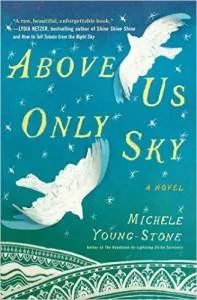 Michele Young-Stone’s Above Us Only Sky, directed by Guillermo del Toro
This book wasn’t my usual literary fare. I’m drawn more to horror than to anything with shades of multi-generational historical fiction or magical realism. But this book has been my favorite read of the year thus far. To bring it to the big screen, I’d only trust del Toro, whose work with such films as Pan’s Labyrinth and The Book of Life have only proven his skill with stories that require bringing the past to extra-enchanted life.
Pat Conroy’s Beach Music, directed by Noah Baumbach
Conroy’s novels have been a guilty pleasure of mine ever since I appropriated my father’s copy of the above-mentioned Beach Music. I love all of his books for their quirky ensemble casts and their over-the-top melodrama and their Gilmore Girls-speed witty repartee. And in fact I would recommend GG‘s Amy Sherman-Palladino, but I don’t think her work is dark enough. Which is why I’m opting for the director of such films as The Squid and the Whale and Greenberg.
Kate Atkinson’s A God in Ruins, directed by Jane Campion
Fellow Book Rioter Teresa Preston turned me on to this possible novel / film director pairing. For this story of “one ordinary man’s path through extraordinary times,” we need Campion, who has a knack for such tales. See: The Piano, Bright Star, and An Angel at My Table.
Michele Young-Stone’s Above Us Only Sky, directed by Guillermo del Toro
This book wasn’t my usual literary fare. I’m drawn more to horror than to anything with shades of multi-generational historical fiction or magical realism. But this book has been my favorite read of the year thus far. To bring it to the big screen, I’d only trust del Toro, whose work with such films as Pan’s Labyrinth and The Book of Life have only proven his skill with stories that require bringing the past to extra-enchanted life.
Pat Conroy’s Beach Music, directed by Noah Baumbach
Conroy’s novels have been a guilty pleasure of mine ever since I appropriated my father’s copy of the above-mentioned Beach Music. I love all of his books for their quirky ensemble casts and their over-the-top melodrama and their Gilmore Girls-speed witty repartee. And in fact I would recommend GG‘s Amy Sherman-Palladino, but I don’t think her work is dark enough. Which is why I’m opting for the director of such films as The Squid and the Whale and Greenberg.
Kate Atkinson’s A God in Ruins, directed by Jane Campion
Fellow Book Rioter Teresa Preston turned me on to this possible novel / film director pairing. For this story of “one ordinary man’s path through extraordinary times,” we need Campion, who has a knack for such tales. See: The Piano, Bright Star, and An Angel at My Table.
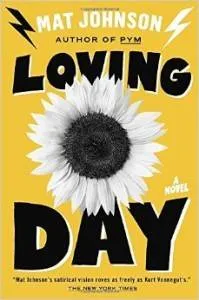 Mat Johnson’s Loving Day, directed by Justin Simien
A comical tale that tackles serious themes (biracialism and self-identity chief among them), I couldn’t help but think of 2014’s Dear White People, which takes a humorous look at the culture wars occurring at a predominantly white school. Though DWP is his first feature film, Simien clearly has the chops to bring Johnson’s book to life.
Manuel Gonzales’s The Regional Office Is Under Attack, directed by Quentin Tarantino
Oh Quentin Tarantino. How do I love thee? Let me count the ways: Reservoir Dogs. Inglourious Basterds. Death Proof. From Dusk ’til Dawn. Kill Bill. Four Rooms. I could go on. For me, his films are pure, ass-kicking fun, even when they completely re-imagine history. The Regional Office is also pure, ass-kicking fun, with a whole slew of Uma Thurmans, instead of just one.
Octavia Butler’s Kindred, directed by Ava DuVernay
Also recommended by Teresa, Kindred is the story of a modern black woman who is snatched abruptly from her home in California and transported backward through time to the antebellum South. (Hold on a second. Stepping offline to immediately purchase this book. Okay. I’m back.) Why DuVernay? Because she has impeccably handled multiple stories of hard-won civil rights, race, and loss in films such as Selma, Middle of Nowhere, and I Will Follow.
Mat Johnson’s Loving Day, directed by Justin Simien
A comical tale that tackles serious themes (biracialism and self-identity chief among them), I couldn’t help but think of 2014’s Dear White People, which takes a humorous look at the culture wars occurring at a predominantly white school. Though DWP is his first feature film, Simien clearly has the chops to bring Johnson’s book to life.
Manuel Gonzales’s The Regional Office Is Under Attack, directed by Quentin Tarantino
Oh Quentin Tarantino. How do I love thee? Let me count the ways: Reservoir Dogs. Inglourious Basterds. Death Proof. From Dusk ’til Dawn. Kill Bill. Four Rooms. I could go on. For me, his films are pure, ass-kicking fun, even when they completely re-imagine history. The Regional Office is also pure, ass-kicking fun, with a whole slew of Uma Thurmans, instead of just one.
Octavia Butler’s Kindred, directed by Ava DuVernay
Also recommended by Teresa, Kindred is the story of a modern black woman who is snatched abruptly from her home in California and transported backward through time to the antebellum South. (Hold on a second. Stepping offline to immediately purchase this book. Okay. I’m back.) Why DuVernay? Because she has impeccably handled multiple stories of hard-won civil rights, race, and loss in films such as Selma, Middle of Nowhere, and I Will Follow.
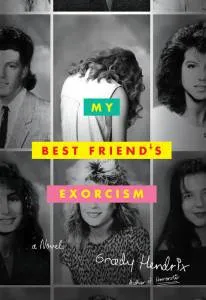 Grady Hendrix’s My Best Friend’s Exorcism, directed by Karyn Kusama
This ’80s-era, high school-centered horror was damn fun, and reminded me of Kusama’s Jennifer’s Body, about a high school hottie taken over by a demon, and about the nerdy best friend who tries to make things right.
Marilynne Robinson’s Lila, directed by Lynne Ramsay
It’s tough to describe this book with a quick blurb, but the ways in which it touches upon family—the problematic families we come from and the ones we create for ourselves—could be handled ably by the director of both We Need to Talk About Kevin and Ratcatcher.
Ernessa T. Carter’s 32 Candles, directed by Regina King
Book Rioter Jamie Canaves insists that people should have been clamoring for the film rights to this book before it was even published. And it does smack of John Hughes-style romantic comedy. But it needs a non-white dude’s sure direction. For that, we go to the director of such films as 2015’s The Last Client.
Grady Hendrix’s My Best Friend’s Exorcism, directed by Karyn Kusama
This ’80s-era, high school-centered horror was damn fun, and reminded me of Kusama’s Jennifer’s Body, about a high school hottie taken over by a demon, and about the nerdy best friend who tries to make things right.
Marilynne Robinson’s Lila, directed by Lynne Ramsay
It’s tough to describe this book with a quick blurb, but the ways in which it touches upon family—the problematic families we come from and the ones we create for ourselves—could be handled ably by the director of both We Need to Talk About Kevin and Ratcatcher.
Ernessa T. Carter’s 32 Candles, directed by Regina King
Book Rioter Jamie Canaves insists that people should have been clamoring for the film rights to this book before it was even published. And it does smack of John Hughes-style romantic comedy. But it needs a non-white dude’s sure direction. For that, we go to the director of such films as 2015’s The Last Client.
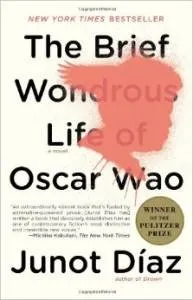 Junot Diaz’s The Brief Wondrous Life of Oscar Wao, directed by Rick Famuyiwa
Diaz’s books are ripe for the big screen, which is why the film rights for this book were once purchased by Miramax. But those rights have since expired, and I have yet to see my movie. May I recommend that the director of the so very brilliant Dope snatch this one up? Both book and film address race and class and culture and dreams of rising out of one’s humble origins with entertaining charm.
I know that I’m not the only one who has Feelings about this topic. What’s on your wish list?
Correction: A previous version of this post mistakenly listed film credits for the actor Regina King versus the director Regina King.
Junot Diaz’s The Brief Wondrous Life of Oscar Wao, directed by Rick Famuyiwa
Diaz’s books are ripe for the big screen, which is why the film rights for this book were once purchased by Miramax. But those rights have since expired, and I have yet to see my movie. May I recommend that the director of the so very brilliant Dope snatch this one up? Both book and film address race and class and culture and dreams of rising out of one’s humble origins with entertaining charm.
I know that I’m not the only one who has Feelings about this topic. What’s on your wish list?
Correction: A previous version of this post mistakenly listed film credits for the actor Regina King versus the director Regina King.









